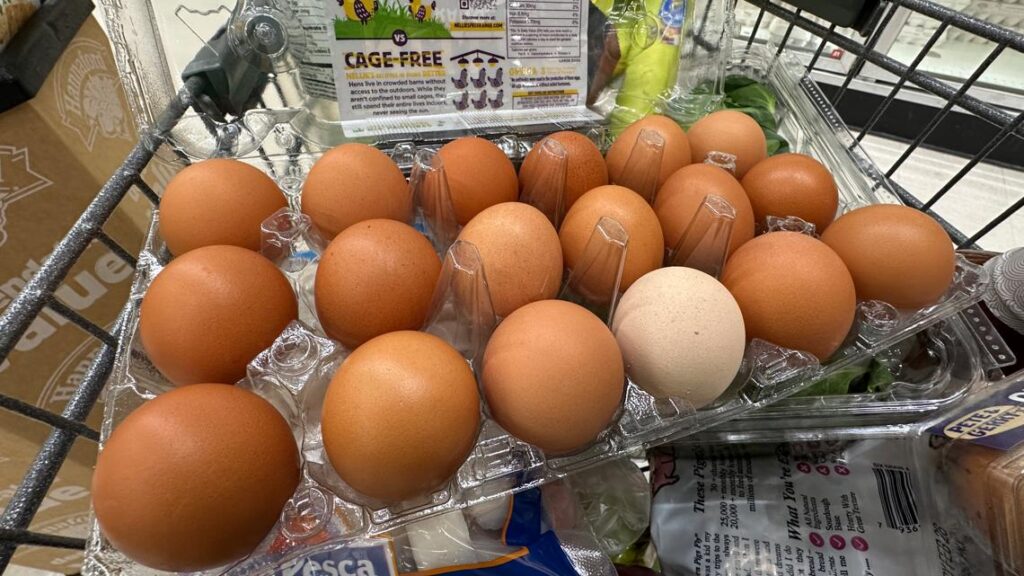Recent data shows grocery prices remain high, although egg prices have started to decline.
CHARLOTTE, N.C. — Consumers facing continued high grocery prices aren’t imagining things, according to recent market data. Some food costs are showing signs of stabilization, though most remain significantly elevated compared to historical norms.
Egg prices are finally beginning to decline after skyrocketing to more than $6 per dozen earlier this spring. Current data analyzed by NBC News shows prices averaging around $5.45 per dozen – still high by historical standards, but offering some relief to consumers. Market analysts note that many shoppers have reluctantly adjusted to these elevated price points, effectively creating a “new normal” in consumer expectations.
RELATED: Inflation down again, prices up 2.3% from this time last year
The pricing pressure extends beyond eggs. Essential proteins like chicken and beef continue to command premium prices, with many consumers expecting their grocery bills to increase further as summer approaches.
Economic experts point to tariffs as a significant factor in these persistent high prices. Ongoing trade disputes have increased costs for imported goods, with these increases being passed directly to consumers at grocery store checkouts nationwide.
The pricing situation may become more complicated in coming months. Agricultural producers say that while some items remain expensive, certain sectors like pork and dairy could actually see price decreases if trade wars continue. This counterintuitive result would occur if export markets shrink and excess supply remains in domestic markets.
Until international trade agreements stabilize, consumers can expect grocery prices to remain volatile, forcing many households to continue adjusting their food budgets accordingly.
For the latest breaking news, weather and traffic alerts that impact you from WCNC Charlotte, download the WCNC Charlotte mobile app and enable push notifications.


